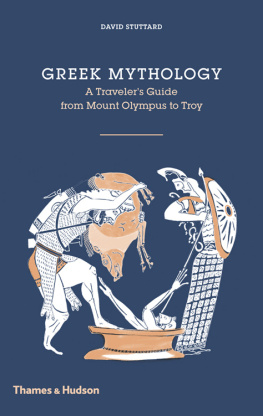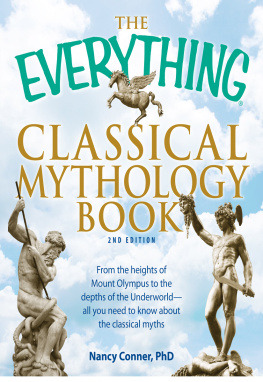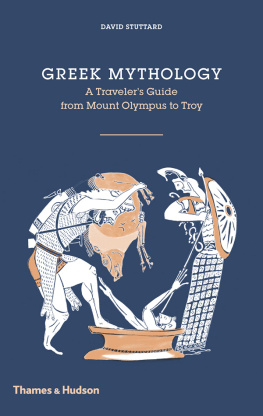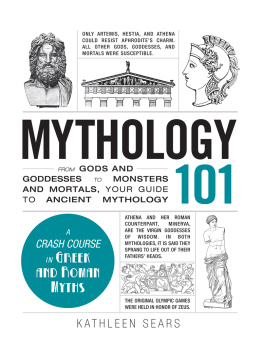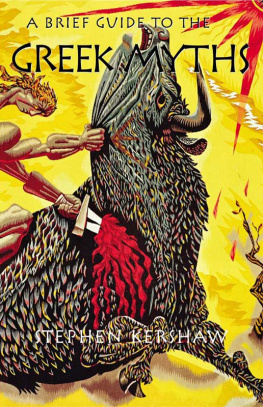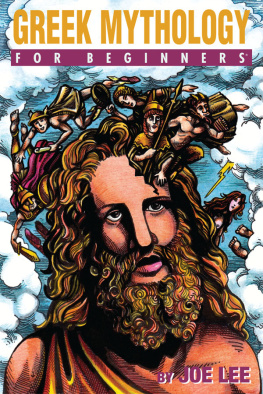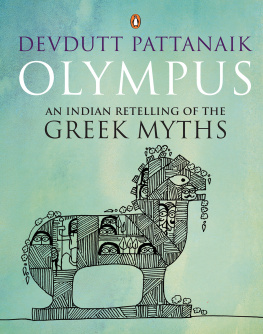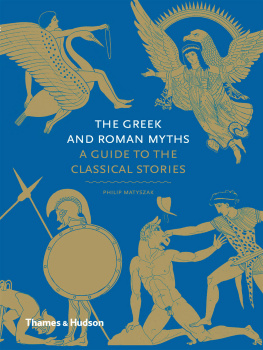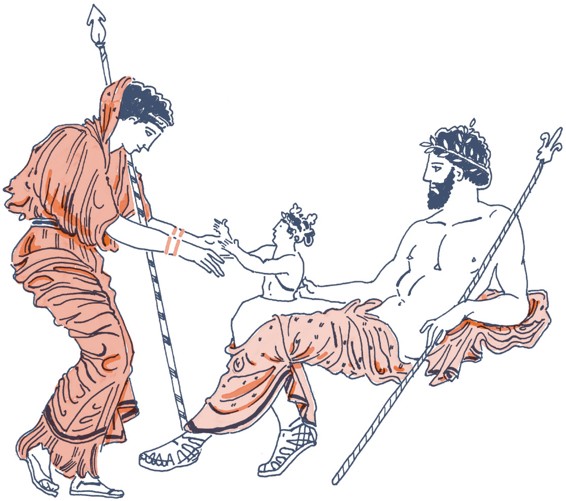

About the Author
David Stuttard taught Classics for eleven years in Edinburgh, St Andrews and York, and has written numerous books on the Classical world including A History of Ancient Greece in Fifty Lives, The Romans Who Shaped Britain (with Sam Moorhead), Power Games: Ritual and Rivalry at the Ancient Greek Olympics and The Parthenon: Power and Politics on the Acropolis. He is the founder of the theatre company Actors of Dionysus and a course tutor at the University of Cambridge.
Other titles of interest published by
Thames & Hudson include:
A History of Ancient Greece in Fifty Lives
Ancient Athens on Five Drachmas a Day
Exploring the World of the Ancient Greeks
See our websites
www.thamesandhudson.com
www.thamesandhudsonusa.com
To Mark Grant, Emily Jane Stuttard and Alex Zambellas, whose warm companionship has so greatly enhanced my own travels in Greece.
Contents
Greek myths have a universal quality. Populated by characters who are as recognizable today as they were in antiquity, and who frequently find themselves in dire, unenviable situations the stuff of our own nightmares they speak to us directly across millennia. Embraced by the Romans and never forgotten even in the Dark Ages, these myths have exercised a profound influence on literature, art and music since the Renaissance, taking root in continents undiscovered by the ancient Greeks. Today, Greek mythology is so embedded in modern culture, including film, television and computer games, that it has become part of the everyday world of many who may otherwise care relatively little for antiquity.
In ancient Greece even after writing was introduced in the eighth century BC most people heard the stories of mythology as children from parents, grandparents and nannies. As adults in the Iron Age they thrilled to bards who recited epic poetry at banquets. In Classical times they heard professionals declaim the Iliad and Odyssey at public festivals, while praise-singers spun legends into paeans celebrating athletes victories and lyre-players sang love songs rich with memories of a lost heroic world. And in theatres citizen-choruses danced to hymns which celebrated fabled deeds and tragic actors took on the role of heroes. The sheer abundance of opportunities for telling and listening to myths was breathtaking.
Already in Homeric epic (which for the first time wove Greek oral myth into literature) we can witness such situations: in the Iliad Achilles sings of the famous deeds of men as he sulks in his tent at Troy; while in the Odyssey, the Phaeacian bard Demodocus entertains listeners with tales of not just Troy, but the Olympian gods.
Heroic Myths
Demodocus songs reveal two strands of mythology. The first deals with heroes mortals or semi-mortals who inhabit and interact with the real world. Archaeology confirms that these myths contain more or less accurate reflections of the late Bronze Age world (c. 1500 c. 1200 BC). Towns and cities such as Troy, Mycenae, Sparta, Pylos, Calydon and Knossos were thriving in precisely the period when they are imagined as playing an important role in mythology. Since the decipherment of Linear B tablets in the mid-twentieth century we have even discovered that Bronze Age peoples spoke an early form of Greek, and that the place-names of mythology corresponded to those of real settlements. Sadly these tablets were used only for bureaucratic record-keeping, not literature, and give no real evidence even for the names of kings. Hittite tablets from Anatolia, however, do connect names such as Priam and Alexandros with Wilusa, which can reasonably be identified with Troy.
Some myths resonate so closely with the evidence of archaeology that there are those today who passionately believe in their historical accuracy. In antiquity, too, no one doubted that the Trojan War really happened. Historians such as Herodotus and Thucydides accepted it as fact, while from the fifth century BC it assumed even greater significance when it was seen as a precursor of the Greeks victory over the Persians. As a result, historical figures such as Xerxes and Alexander the Great made sacrifices at Troy the one praying to avenge the Trojans defeat, the other to outvie it.
Prominent Greek (and, later, Roman) families traced their lineage back to heroes of the Trojan War, just as some English people today boast of ancestors who came to Britain with the Normans, or Americans profess connections with the Founding Fathers. Thus Alexander claimed descent from Achilles (and Heracles), while Julius Caesar and Augustus counted Aeneas and Anchises among their forebears.
Creation Myths
Demodocus sang, too, of the gods, and an important body of Greek mythology takes place in a wider cosmic setting. Some myths describe the creation of the universe. Hesiod summarizes them in his short epic poem, Theogony (Birth of the Gods) a fusion of Greek and Near Eastern traditions. Here the world is born from the void of Chaos, generations of gods vie for supremacy, and sons castrate or otherwise weaken fathers to seize ultimate control. A bewildering array of gods and goddesses populates this early world, many the personifications of abstract concepts such as Vengeance, Lawlessness, Fate and Harmony.
Such creation myths have their roots many millennia before Hesiod in early mans attempts to explain his environment and his place within it, and many of their themes are shared across different cultures. For example, the story of a great flood sent to punish (or annihilate) mankind, whose only survivors, a pious couple, subsequently repopulate the world, appears throughout the Near East, while common to many of the worlds great religions is the patriarchal explanation that a woman (be she Eve or Pandora) caused all human misery.
Universal Myths
Even myths that at first seem quintessentially Greek contain universal folk-tale motifs as three examples show. The first involves a baby abandoned to die, who returns to claim a throne. Central to the myth of Oedipus, this theme plays an important role too in the tale of the Trojan Paris, as well as of Pelias and Neleus, respectively king of Iolcus and founder of Pylos. A variation is the story of Perseus, set adrift in a casket with his mother Dana. In certain circumstances throughout antiquity babies were exposed to die, and the motif of a child surviving to grow up and wreak deliberate or accidental vengeance no doubt reflects real fears.
A second example betrays another anxiety, this time about the written word, which for early Greeks must have seemed both magical and sinister. Letters written by rejected women wrongly accuse two mythological characters of rape: Hippolytus, who is killed as a result, and Bellerophon, who lives to be exonerated.
In a third motif an adventurer overcomes adversities and wins the love of a foreign princess. Sometimes (Perseus and Andromeda) the outcome is benign; sometimes (Jason and Medea; Theseus and Ariadne) it is disastrous. Occasionally it turns expectations on their head. Rather than journeying to an unknown land, Oedipus unwittingly returns home to defeat the monstrous Sphinx and claim the hand not of an exotic princess but of his own mother.
Next page
